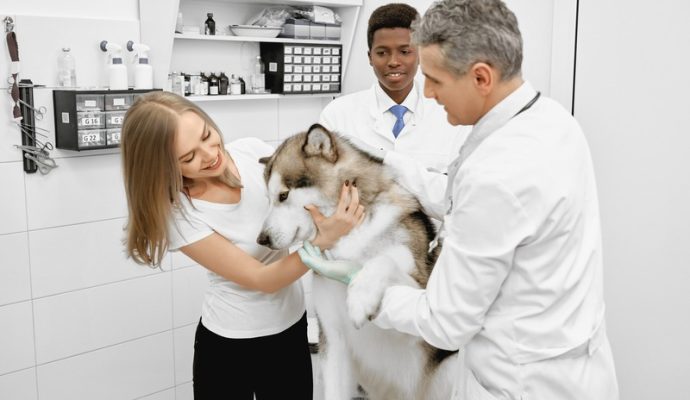Our furry friends are more than just pets; they’re part of our families. So, when they fall ill, it’s a tough pill to swallow. Often, a healthy lifestyle and regular check-ups can prevent many ailments, but sometimes their little bodies encounter sickness that’s tougher to shake off. One of the most stressful situations for pet owners is when our beloved companions are diagnosed with diseases that require veterinary surgery. Getting a deeper understanding of these internal diseases can help us prepare for potential issues and ensure that we provide the best care possible for our four-legged pals.
Common Internal Diseases in Pets
There are a variety of internal diseases that can afflict our pets, each with its own set of complexities. Some of these might be managed through medication and lifestyle changes, but others can only be resolved with surgical intervention. Here’s a look at some common afflictions that may lead our furry companions to the operating table:
Bladder Stones
Bladder stones, or uroliths, are a common issue in both dogs and cats. These hard accumulations of minerals can form in the bladder or urinary tract and cause a world of discomfort for your pet. Surgery is often required to remove larger stones that cannot be dissolved by diet or pass through the urinary tract on their own.
Intestinal Obstructions
Our curious pets sometimes eat things they shouldn’t, leading to dangerous blockages in their digestive tracts. Whether it’s a playful pup swallowing a toy or a cat ingesting a string, these foreign objects can only be removed surgically to prevent serious harm or even death.
Liver Disease
Liver disease in pets can stem from various factors, including genetics, infection, or exposure to toxins. In some cases, surgery is necessary to correct congenital abnormalities or to remove tumors that can impair liver function.
Chronic Kidney Disease
Chronic kidney disease is often a progressive condition affecting older pets. While early stages can be managed, advanced cases might require surgical removal of kidney stones or even a kidney transplant in rare instances.
Splenic Tumors
Both benign and malignant tumors can develop in a pet’s spleen. When they do, surgical removal of the spleen may be recommended, particularly if the tumor is at risk of rupturing, which can cause life-threatening internal bleeding.
Pyometra
This serious uterine infection occurs most often in unspayed female pets. Pyometra can be deadly if left untreated and usually necessitates emergency spaying to remove the infected uterus and ovaries.
Spotting the Signs
As pet owners, staying vigilant and recognizing the signs of internal illnesses is critical. Here’s what we should be on the lookout for:
-
Changes in appetite or water consumption
-
Unexplained weight loss or gain
-
Vomiting or diarrhea
-
Difficulty urinating or changes in urinary habits
-
Abdominal pain or swelling
-
Lethargy or depression
-
Jaundice (a yellowish tint to the skin, whites of eyes, or gums)
Routine examinations play a crucial role in detecting problems before they worsen, leading us to the significance of pet vaccinations for their health. Immunizations are essential in safeguarding pets from contagious illnesses that can cause serious internal medical issues, potentially necessitating surgical treatment.
The Role of Diagnostic Tools
When it comes to identifying internal diseases in pets, vets have a range of diagnostic tools at their disposal. Bloodwork, urinalysis, X-rays, ultrasounds, and MRIs can all help in pinpointing the exact nature of your pet’s malady and determining the necessity for surgery.
What to Expect from Surgery
If your pet does need surgery, it’s natural to have concerns. Modern veterinary medicine, however, has made significant advances. Here’s what the journey generally looks like:
-
Pre-Surgery: Your vet will conduct a thorough examination and likely order preoperative tests to ensure your pet is fit for surgery.
-
Anesthesia: Anesthesia protocols are carefully tailored to your pet’s specific needs, ensuring they’re safely asleep during the procedure.
-
The Procedure: Whether it’s removing a foreign object or excising a tumor, veterinary surgeons utilize techniques that are as minimally invasive as possible.
-
Recovery: Post-operative care is critical. Your pet may need to stay at the clinic for observation, and you’ll receive detailed instructions for at-home care.
Furthermore, if you’re looking for a veterinary internal medicine specialist, know that they play an integral part in the pre- and post-operative periods. These experts can offer advanced support in diagnosing and managing complex internal conditions.
Aftercare and Recovery
The success of a surgery doesn’t just hinge on the skill of the surgeon; post-operative care is just as important. Here’s what you can do to help your pet have a smooth recovery:
-
Keep them comfortable and quiet; a cozy recovery area away from too much noise or activity can help.
-
Follow your vet’s instructions for giving medications, which may include pain relievers or antibiotics.
-
Monitor the surgical site for signs of infection and ensure your pet isn’t disturbing their stitches or bandages.
-
Pet nutrition is essential; your vet may recommend a special diet to support recovery.
-
Limit your pet’s movement according to your vet’s recommendations to prevent strain on healing tissues.
It’s crucial to give your pet love and attention during this time, but resist the urge to over indulge them with treats or excessive pampering that may hinder their recovery.
The Cost Factor
It’s no secret that surgical procedures can be costly. Here are some tips to help manage the financial side of your pet’s surgery:
-
Always have an emergency fund set aside for unexpected pet healthcare costs.
-
Look into pet insurance plans that cover surgeries and other major medical expenses.
-
Discuss payment plans or financial assistance programs with your veterinary clinic.
-
In cases of extreme financial difficulty, some charitable organizations may offer help.
Final Thoughts
Taking care of a pet with a serious illness is never easy, but understanding the common internal diseases that require veterinary surgery can arm us with the knowledge to act swiftly should the need arise. Remember to stay observant of your pet’s behavior and health, keep regular veterinary appointments, and don’t hesitate to seek professional advice if something seems off. Above all, shower your pet with love and attentiveness because, at the end of the day, that’s the best medicine of all.




